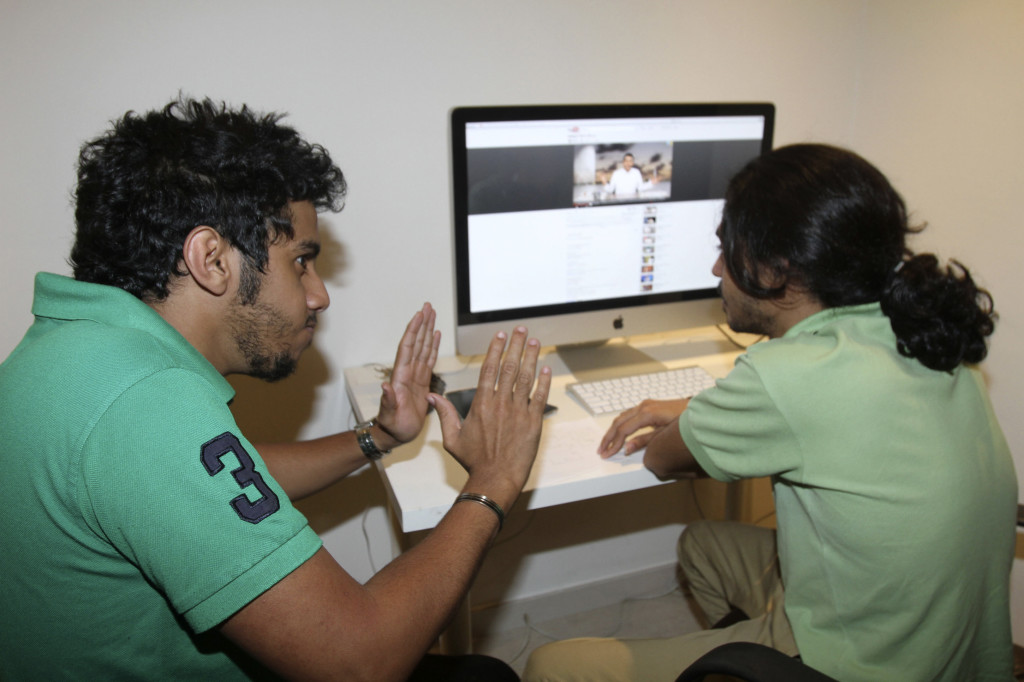
Members of the Uturn comedian group work on a YouTube video in Jeddah March 26, 2012. The media is censored and reporters who cross unofficial red lines can face the sack, hefty fines or even prison sentences. But bloggers and contributors to online forums now openly discuss social ills, government inefficiency and corruption, while a Twitter user who ridicules the royal family has attracted 250,000 followers. Picture taken March 26, 2012. To match Feature SAUDI-ONLINE/TABOO REUTERS/Susan Baaghil
Saudi Arabia’s Al-Hayat newspaper has reported that the Kingdom is considering setting up a new agency that would monitor and censor video content uploaded onto YouTube and other internet sharing sites. It quotes the head of the Kingdom’s Commission for Audiovisual Media, Dr. Riadh Najem, who has since criticized the report–though he has not confirmed or denied it.
Saudi Comedian Fahad Albutairi, a stand-up comedian and creator of the wildly popular La Yekthar Show on YouTube, told RePRESSed, “News about censoring YouTube shows in Saudi are just rumors.”
Saudi’s under-30 set accounts for 60% of the total Saudi population of 28 million. The Kingdom now boasts the highest per-capita use of YouTube on the planet, with more than 90 million hits every day. Do the math: That’s 3 YouTube hits per person per day.
Bored by traditional media, which is controlled by the state, youth have begun turning to YouTube sites like UTURN Entertainment or La Yekthar for fresh, humorous content produced outside of the purview of religious censors.
Saudi Arabia now boasts the highest per-capita use of YouTube on the plant, with more than 90 million hits every day.
Saudi Arabia placed #8 on the Committee to Protect Journalists’ 2012 list of the 10 most censored countries.
Reporters Without Borders (RSF) says the internet has been one of the few areas where Saudis can express themselves and share information. If this report is confirmed, RSF says it would “yet again show that the Saudi authorities are bent on eliminating all space for freedom and gagging civil society.”
